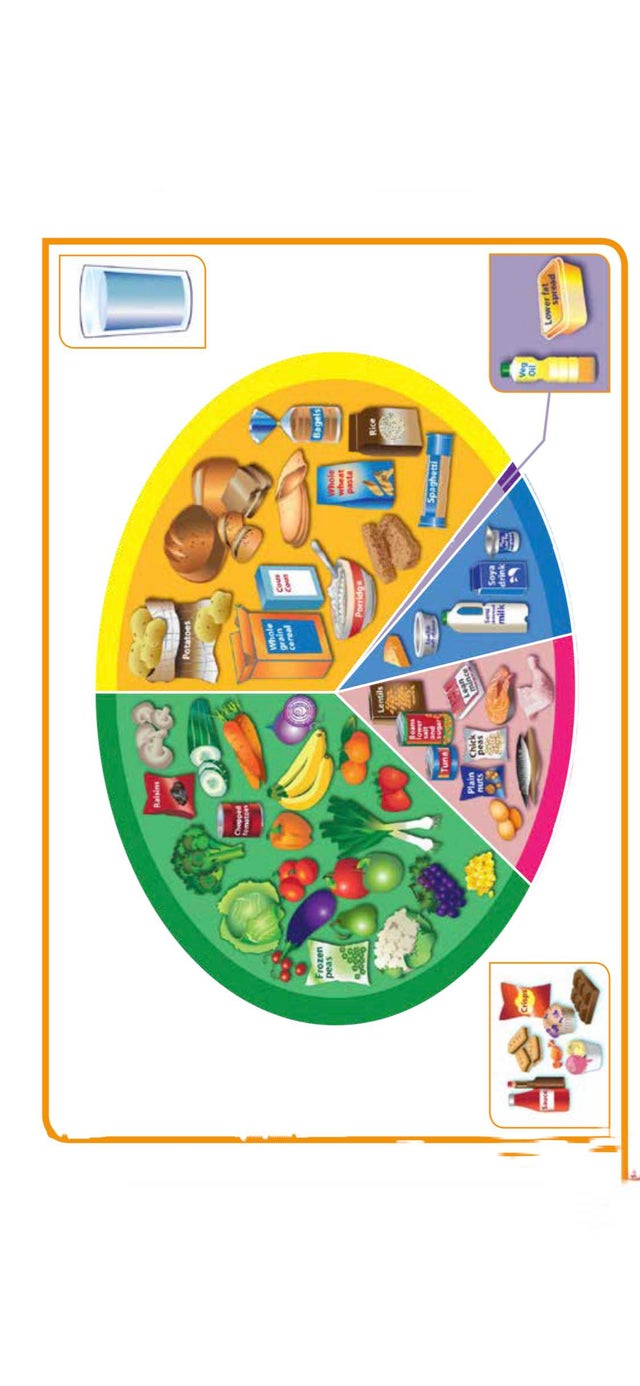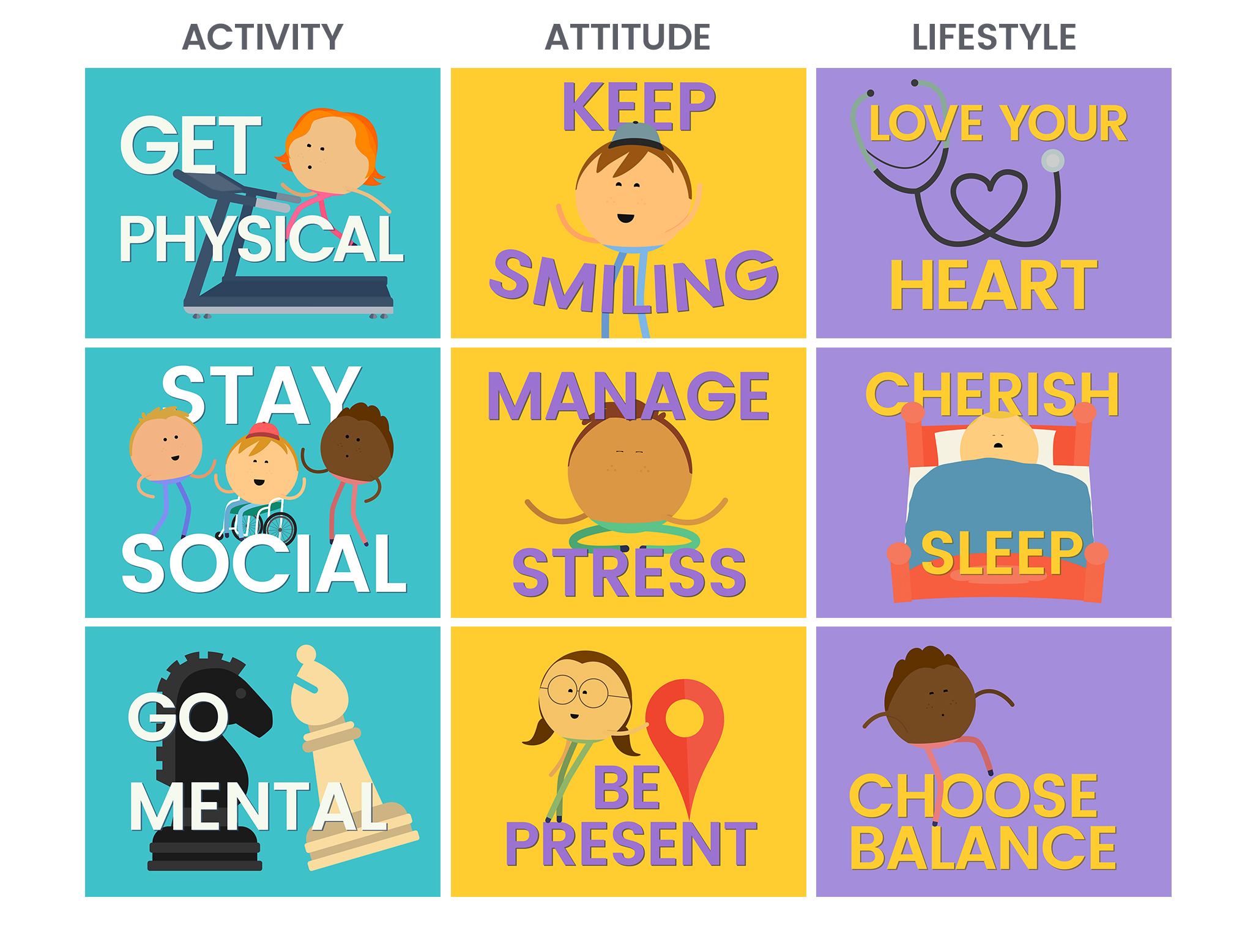
According to research, exercising can help reduce or prevent many chronic diseases. It has been found that people who engage in moderate exercise are less likely to develop certain types of cancer. Moreover, people who exercise regularly have lower risks of developing diabetes and cardiovascular disease, which are linked to obesity. People who exercise regularly have lower symptoms, which can help to prevent the development of these diseases.
Exercising has numerous benefits. It has been proven to improve the memory and concentration, reduce the risk of depression and insomnia, prevent heart disease, lower cholesterol levels and blood pressure, promote bone health, and enhance the immune system. Furthermore, physical activity increases the number of WBCs, which means that it is an excellent anti-inflammation agent. This could help with a variety of ailments. Because of all the other benefits, evidence is mounting for exercise's use as a treatment option for chronic diseases.

The benefits of exercise are transdiagnostic, which means that they may differ according to the symptom you experience. Exercise, for example, can improve your sleep quality, mood, and alleviate stress and anxiety. Exercise can also help reduce the risk of developing diabetes, heart disease, stroke and other diseases. Not only can you prevent these diseases but exercise is also beneficial for maintaining a healthy weight, and overall good health.
According to the Mayo Clinic, there are 29 million Americans living with diabetes. Many of these patients don't know they have diabetes and are often unaware that their condition exists. A study of heart attack patients showed a 20 to 25% reduction in their mortality compared to non-participants. Other studies showed even higher reductions. Many studies have shown that exercise rehabilitation can increase the life expectancy of people who suffer from heart attacks.
Regular exercise can have many health benefits. It can improve quality of life and reduce the likelihood of developing many diseases, such type 2 diabetes, cardiovascular disease, or other types of cancer. It can also lower the likelihood of other health problems such as depression, anxiety, dementia, or dementia. These are just two of many benefits of exercising. It is important that you are active and prevent chronic diseases. There are numerous other advantages of exercising.

Regular exercise is linked to lower chances of developing chronic illnesses such as diabetes and heart disease. It can, for example, lower the risk of high bloodpressure and other complications. It can also improve your overall well-being. Research on heart disease has shown that stroke prevention can be achieved by increasing your physical activity. This means that the risks of cardiovascular diseases are reduced if you increase your level of activity. If you're overweight, exercise will help you lose excess weight.
FAQ
Which is the best workout for men?
It all depends on your goals. Cardio workouts can help you lose weight faster than strength training.
For those who want to gain muscle mass, strength training will be a better option, as it increases your lean body mass.
Both types of exercise are proven to be beneficial if you're looking to improve your overall health.
I recommend HIIT (or sprint interval training) if you want to be fit quickly. This type helps you burn fat quickly, by increasing your metabolism. It will also help you stay motivated to train even when your body is tired.
Do I need to exercise every day?
No! You should do at least 30 mins of moderate-intensity activity 5 days per week. This means that you should be able to walk fast enough to feel slightly out of breath, or bike hard enough to sweat.
How many calories should you consume each day?
It varies from one person to another. On average, 2000 to 2500 calories are consumed per day. You need to determine how many calories you need based on age, gender, height, weight, activity level, and lifestyle.
What is the purpose of milk for men?
Think about other uses for milk next time you purchase it. It may be a good idea to reduce your coffee intake.
It has been proven that milk is beneficial for both children and adults. The nutrients in milk include vitamin D, calcium potassium, phosphorous and magnesium.
It helps with digestion, promotes weight growth, and improves bone strength. People who consume dairy products have lower rates of illness and better immune systems.
The lactose in milk is also high, so people with digestive problems can enjoy the benefits of milk without experiencing stomach discomfort.
Drink more milk than soda and juice. Drinking milk with more calcium and vitamin A can help to strengthen your teeth.
Plain low-fat yogurt is another option if milk tastes bland to you. Yogurt is a great alternative to milk since it is lower in calories and higher in protein.
Yogurt also contains probiotics, which aid in digestion and improve immunity.
Warm milk can help you sleep better if you have trouble falling asleep. Warm milk relaxes the muscles and increases serotonin levels. It will give you a restful night.
How quickly can I transform the body of my child?
The first step is to change your mind. It is important to first make the decision to change.
Once you have decided that you want to change, then you need to commit yourself to work on your fitness goals for at least 3 months.
Then you need to find a program that fits into your lifestyle.
You also need to set realistic expectations. If you are not ready to dedicate the time and effort to reach your goal, do not spend money on a gym.
Instead, make use of your time outdoors.
Walk around your block for an hour every day to burn calories and help you lose 1 lb per month.
Now that you have an idea of what you want, start planning how to arrange your life to follow this plan.
It is important to set aside time every day for exercise before going to work. You can also take breaks throughout each day to get up and move.
Reward yourself for reaching milestones. This could be buying accessories or clothing that reflect your success.
What is butter good for?
Butter is one of the best sources of saturated fats. This type is beneficial for healthy skin and hair as well as stronger bones.
Vitamin K is also found in butter, which helps prevent bleeding from cuts or bruises. Vitamin K works together with vitamin C to prevent bruising.
Butter is rich in minerals such as calcium, potassium, and phosphorous. These elements help to build stronger bones and teeth.
Butter does have some drawbacks. Butter contains high levels of cholesterol. A few studies have shown that too much cholesterol can increase the risk of developing coronary disease.
Butter is also high-fat, which can contribute to obesity and increase cholesterol.
But if butter is a must, you can spread it on bread and not dip it in soups or salads. Bread absorbs less oil than pasta and potatoes.
Statistics
- The PRS enabled risk stratification for overall prostate cancer and lethal disease with a four-fold difference between men in the highest and lowest quartiles (HR, 4.32; 95% confidence interval [CI], 3.16-5.89). (pubmed.ncbi.nlm.nih.gov)
- 10 pounds in a month is likely during a lean bulking phase, especially for beginners. (muscleandstrength.com)
- By John Thompson Take a whopping 38% off a set of PowerBlock Pros. (menshealth.com)
- According to the American Academy of Dermatology (AAD), men over 50 are at a heightened risk of developing it. (healthline.com)
- Get free shipping and 25% off today. (healthline.com)
External Links
How To
How do I lose weight while working out?
Exercise reduces calories by increasing metabolism, and oxygen consumption.
If you exercise with moderate intensity, you can safely lose weight.
To burn fat while exercising, follow these tips:
-
Cardio exercises include walking, running, swimming, cycling, running and jogging.
-
Exercise for 30 minutes three times per week.
-
If you want to lose more weight, add strength training to your routine.
-
Avoid doing intense exercises. You can build muscle and not break down muscle tissue.
-
During exercise, drink plenty of water. Water flushes out toxins and helps keep the body hydrated.
-
After exercising, consume low-fat protein smoothies. Protein shakes boost energy and repair muscle tissue.
-
So you don’t feel hungry, eat smaller meals throughout your day.
-
Don't skip breakfast! Skipping breakfast can lead to fatigue and sluggishness.
-
Take care of your mind. Stressful situations may slow down your metabolism.
-
Keep a positive attitude. Studies show that people who believe they're overweight gain more weight than those who think they look pleasing.
-
Get enough sleep. It is harder to lose fat if you don't get enough sleep.
-
Always be active. Keep moving every hour.
-
Maintain a healthy diet. Eat right to feel satisfied and full for longer.
-
Find ways to relax. Tenseness can cause stress hormones to break down muscle tissue.
A balanced diet includes all essential nutrients needed for growth and development.
Six small meals per day is better than three large meals. This gives your body the time it needs to process what you've eat.
You need about 500 milligrams of calcium daily to maintain strong bones. Calcium is found in dairy products like yogurt, fortified milk beverages, orange juices, cereals and bread.
Calcium is found in leafy vegetables, beans and tofu, as well nuts, seeds and cheese.
Your body needs vitamin D to absorb calcium. Vitamin D is found in certain fortified foods, such as egg yolk and fatty fish.
Vitamin E is vital for your skin's health. Vitamin E is found in vegetable oils and wheat germ oil, as well as peanuts, almonds and sunflower seeds.
Your body requires zinc to function normally and for wound healing. Zinc is found in oysters, legumes, meats, whole grains, and seafood.
Zinc deficiency can cause fatigue, loss of appetite, depression, and impaired immunity.
Too much sugar leads to insulin resistance. This results in higher blood glucose levels. Insulin resistance leads directly to weight gain.
Insulin resistance develops when there are high levels of free radicals in the bloodstream. Free radicals refer to molecules that contain unpaired electrons. They can damage cell membranes and other body parts.
The main sources of free radicals are food additives.
Free radical damage can lead to cancer, heart disease, diabetes, arthritis, asthma, and aging.
A well-balanced diet rich in antioxidants is the best way for you to avoid free radical damage. Antioxidants protect against oxidative damage.
Vitamin C, beta carotene (found within citrus fruits, carrots, sweet potatoes and spinach), Vitamin E (found inside nuts, olive oils, avocados and eggs), and Vitamin C (found among mangoes.
Other antioxidant nutrients include selenium, copper, manganese, and zinc.
Selenium protects cells against oxidative damage from free radicals. Selenium can also be found in Brazil nuts (tuna), liver, kidneys and shrimp.
Copper protects the brain, eyes, lungs, and red blood cells. Copper is found in shellfishes, poultry, meat, organ meats, and other foods.
Manganese is an essential component of bone structure. Manganese is found as a component of bone structure in brown rice (spinach, bananas), prunes, raisins and oatmeal.
Zinc is essential for normal growth, reproduction, wound healing, and average growth. Zn is found in lean meats, poultry, white fish and eggs.